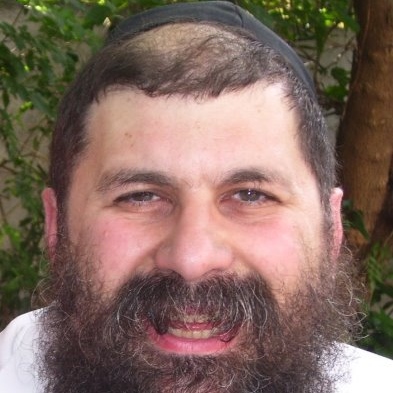News
A wedding to remember
We have all seen recent pictures of brides and grooms marking their special day around the world, but there is something eerily absent in these celebrations: the crowd.

RABBI YOSSI CHAIKIN
Seeing photos of these ceremonies with barely a handful of invited guests fills us with sadness. But then we look at the joy that fills the faces of the chatan and kallah (bridegroom and bride). For sure, this isn’t the wedding of their dreams, the one they may have planned for months or even years, with perfect attention to every detail, from colour schemes, menus, décor down to the exact list of invitees. No doubt there is disappointment that the day they were both so looking forward to has turned out to be an altogether different simcha. The happiness we see in the couple is the celebration of their marriage, of the absolute dedication they are pledging to their relationship, and of their vows of mutual respect, love, and care.
A few days ago, the editor of the SA Jewish Report contacted me to ask me to write a Shavuot column for this edition. The brief sounded similar to the one I received just a year ago, before Shavuot in 2019. I went back to her original email, which asked me to compose an article about the custom of tikkun leil Shavuot, when communities get together for a late or all-night vigil to study Torah. This year’s request was almost identical, except it was how we would observe the important customs of the chag at a time when religious gatherings are banned by law.
I re-read last year’s writing, and my eyes welled up as I recalled the remarkable programmes that our amazing team of rabbonim have been putting together for this holiday over the years. All involved gatherings which are currently dangerous and prohibited by law. South Africa’s rabbis have been incredibly creative in keeping their respective congregations together and active at this time particularly through the use of technology. On Shavuot, of course, the use of Zoom or other real-time electronic tools is halachically prohibited. How will we have a proper chag this year?
Our circumstances have forced us all to look at the core – the core of who we are, what we do, how we act, and why we do things. The same will be true of the forthcoming holiday. What is Shavuot really all about? It’s the celebration of the marriage of the Jewish nation, the bride, with her groom, the almighty G-d. The Torah, much like a Ketubah document composed prior to nuptials, is the document outlining the terms and the conditions of this union.
Each Shavuot, on the anniversary of the initial covenant on Mount Sinai 3 332 years ago, we celebrate this marriage once again. We are accustomed to having large wedding gatherings for the occasion. But this year, there won’t be any guests, just the bride and groom. And, nothing can take away from the joy of this amazing union.
Over the years, I have counselled countless brides and grooms to concentrate more on the forthcoming marriage and less on the wedding. A wedding lasts only a few hours, but the marriage is for a lifetime. Does the same not apply to these Shavuot nuptials? Let us make this yom tov as happy as we can, just Hashem and us, in wedded bliss. Never mind who is or isn’t there. We have our groom. We will rejoice with Him and pore over the minutiae of the Torah, our wedding contract, as we marvel on our absolute good fortune.
Our rabbis will do everything they can to prepare us in advance of the festival to make the day as special as it can be. But come Shavuot, it will be just the purity of this union, just Hashem and His people, together, alone.
It will be a wedding to remember. But it’s about Hashem, not the wedding of our dreams. Remember that, and this year, let’s celebrate hopefully the way weddings should be celebrated.
Chag Sameach!
• Rabbi Yossi Chaikin is the rabbi of the Oxford Synagogue Centre, and the chairman of the South African Rabbinical Association.
Mark Meltzer
May 21, 2020 at 4:24 pm
‘Rabbi Yossi and Rebbitzin Rivki Chaikin are thanked for arranging Zoom services and shiurim for Oxford Synagogue congregants and general community who partake in virtual communications.
We hope that the current restrictions on prayer services and community activities are lifted soon’